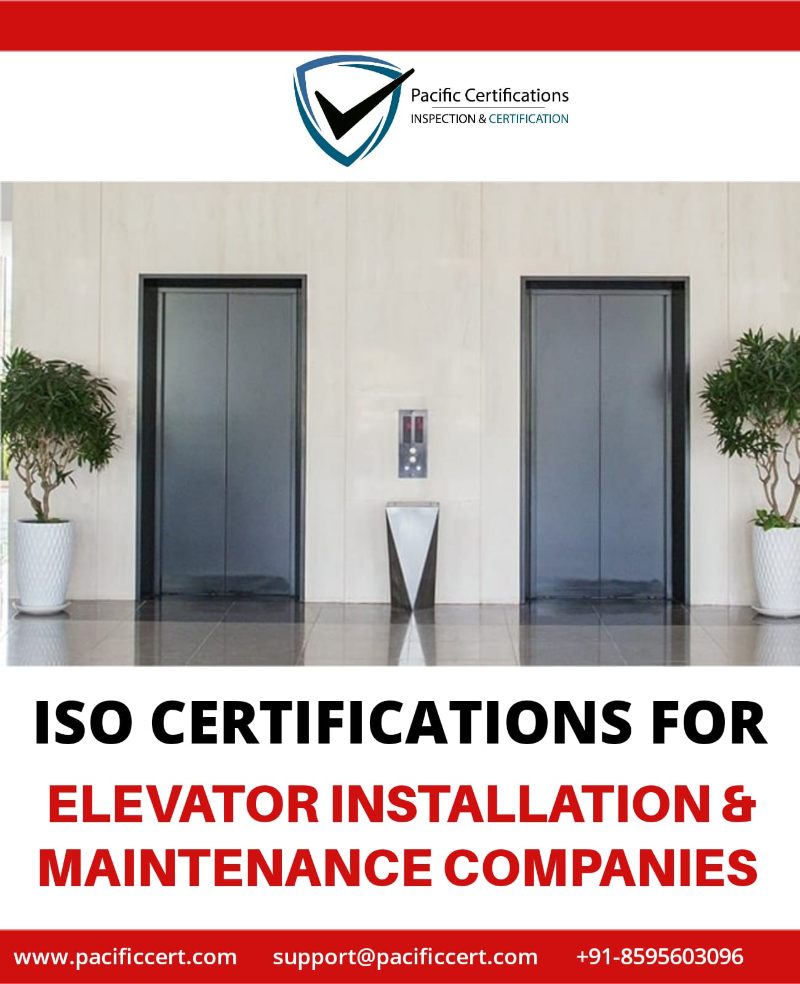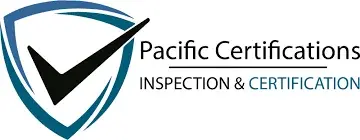ISO Certifications for Elevator Installation and Maintenance Services, Requirements and Benefits

Introduction
Elevator installation and maintenance services operate in a safety-critical, regulation-intensive, and precision-driven environment where workmanship quality, preventive maintenance, compliance with safety codes, and service reliability directly affect public safety and client trust. These services cover elevator and escalator installation, modernization, routine maintenance, breakdown repairs, inspections, testing, and lifecycle support across residential, commercial, industrial, and public infrastructure facilities.
With stricter building codes, rising urban density, higher expectations for uptime, and increased scrutiny from regulators, property owners, and insurers, elevator service providers are under constant pressure to demonstrate disciplined governance. Installation defects, missed maintenance, safety incidents, or poor documentation can result in legal exposure, downtime, and reputational damage. ISO certifications provide a structured, internationally recognized framework to standardize operations, manage safety and risks, ensure continuity of services, and strengthen credibility with clients and authorities.
In elevator services, trust is built on safety, reliability, and control.
Quick Summary
ISO certifications provide elevator installation and maintenance service providers with internationally recognized frameworks to manage service quality through ISO 9001, ensure occupational health and safety through ISO 45001, manage environmental responsibilities through ISO 14001, protect technical documentation and records through ISO/IEC 27001, ensure service continuity through ISO 22301, and strengthen risk governance through ISO 31000. These standards support safer installations, compliant maintenance, and dependable service delivery.
For guidance on selecting the most relevant ISO standards for your elevator services, contact [email protected].
Applicable ISO Standards for Elevator Installation and Maintenance Services
Below are the applicable ISO standards for elevator installation and maintenance services:
ISO 9001:2015 – Quality Management Systems
ISO 9001 helps elevator service providers standardize installation planning, commissioning, preventive maintenance schedules, breakdown handling, spare-parts control, inspection reporting, and customer communication. It reduces errors, improves service consistency, and ensures compliance with contractual and regulatory requirements.
ISO 45001:2018 – Occupational Health & Safety Management Systems
Elevator installation and maintenance involve high-risk activities such as working at heights, electrical systems, confined spaces, lifting operations, and live machinery. ISO 45001 provides a structured framework to identify hazards, manage contractor safety, ensure legal compliance, and reduce workplace incidents.
ISO 14001:2015 – Environmental Management Systems
ISO 14001 supports responsible management of environmental aspects such as disposal of oils and lubricants, replacement parts, batteries, packaging waste, noise, and energy consumption during installation and maintenance activities.
ISO 27001: Information Security Management Systems (ISMS)
Elevator service providers manage sensitive technical documents, drawings, control software access, maintenance logs, inspection records, and client contracts. ISO/IEC 27001 ensures these information assets are protected against unauthorized access, loss, or misuse.
ISO 22301:2019 – Business Continuity Management Systems
Elevator breakdowns can disrupt critical building operations. ISO 22301 ensures service providers can continue or quickly restore maintenance and emergency response services during workforce shortages, supply delays, system outages, or external disruptions.
ISO 22301:2019 – Business Continuity Management Systems
ISO 31000 enables elevator service companies to systematically identify and manage risks related to safety incidents, compliance failures, equipment faults, service delays, and contractual liabilities, supporting informed decision-making.
Click here to find out more applicable standards to your industry
What are the Requirements of ISO Certifications for Elevator Installation and Maintenance Services?
Elevator installation and maintenance service providers seeking ISO certification must establish documented management systems and demonstrate consistent implementation across technical and operational activities. Key requirements include the following:
ISO 9001:2015 – Quality Management Systems
Document installation, commissioning, maintenance, and repair procedures
Define quality objectives aligned with safety, uptime, and client expectations
Control technical manuals, checklists, service reports, and records
Monitor defects, non-conformities, and service complaints
Implement corrective actions and continual improvement
Conduct internal audits and management reviews
ISO 45001:2018 – Occupational Health & Safety
Identify task-specific hazards for installation and maintenance work
Assess OH&S risks and implement control measures
Ensure compliance with safety laws, codes, and permits
Provide safety training, PPE, and site inductions
Establish emergency response and incident reporting procedures
Monitor safety performance and continual improvement
ISO 14001:2015 – Environmental Management
Identify environmental aspects of service activities
Control waste handling, disposal, and recycling
Manage use of oils, chemicals, and consumables
Ensure compliance with environmental regulations
Monitor environmental performance and improvement actions
ISO/IEC 27001:2022 – Information Security
Identify and classify technical and business information assets
Conduct information security risk assessments
Implement access controls for drawings, systems, and records
Secure digital maintenance and inspection systems
Manage third-party access to sensitive information
Monitor and improve ISMS effectiveness
ISO 22301:2019 – Business Continuity
Identify critical maintenance and emergency response services
Conduct business impact analysis (BIA)
Define backup staffing, parts availability, and recovery plans
Test continuity arrangements periodically
Train staff on escalation and response procedures
Tip:Map one complete elevator service lifecycle—from installation and commissioning to routine maintenance, breakdown response, and modernization—against ISO requirements to identify safety, quality, and continuity gaps early.
For assistance in evaluating your elevator installation and maintenance services against ISO requirements, contact [email protected].
What are the Benefits of ISO Certifications for Elevator Installation and Maintenance Services?
ISO certifications provide elevator service providers with strong operational and commercial benefits, including:
Improved installation quality and reduced defects
Safer working conditions and fewer safety incidents
Better compliance with elevator safety codes and regulations
Consistent maintenance and faster breakdown response
Stronger control over documentation and service records
Increased trust from building owners, regulators, and insurers
Improved eligibility for large commercial and public projects
Reduced operational and legal risks
Enhanced service continuity and reliability
Long-term credibility and business growth
Global urbanization and high-rise construction continue to drive demand for elevators and escalators. The global elevator and escalator market is projected to exceed USD 150 billion in a coming years, with maintenance and modernization accounting for a significant share due to aging infrastructure and stricter safety standards.
At the same time, regulators and property owners are placing stronger emphasis on safety performance, documented maintenance, and qualified service providers. Elevator companies with ISO-aligned management systems are better positioned to secure long-term service contracts, meet compliance expectations, and operate safely at scale. ISO certifications, including ISO 9001, ISO 45001, and ISO 14001, are increasingly becoming fundamental requirements for professional elevator installation and maintenance service providers.
How Pacific Certifications Can Help?
Pacific Certifications, accredited by ABIS, acts as an independent certification body for elevator installation and maintenance service providers by conducting impartial audits against applicable ISO standards. Our role is to objectively assess whether documented management systems and service operations conform to international ISO requirements, based strictly on verifiable evidence and records.
We support elevator service providers through:
Independent certification audits conducted in accordance with ISO/IEC 17021
Objective assessment of installation, maintenance, safety, and risk controls
Clear audit reporting reflecting conformity status and certification decisions
Internationally recognized ISO certification upon successful compliance
Surveillance and recertification audits to maintain certification validity
Contact Us
For ISO certification for elevator installation and maintenance services, contact [email protected]or call +91-8595603096.
Author: Ashish
Read more: Pacific Blogs

